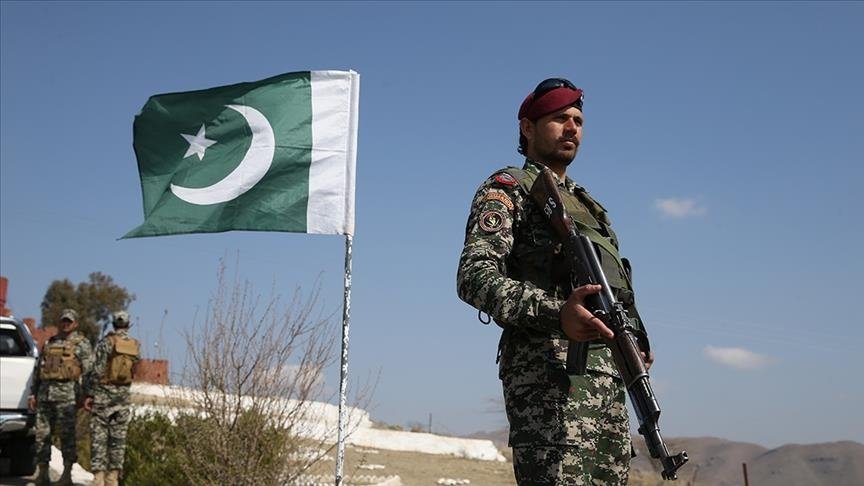Pakistan Forces Kill Three Militants in Zhob district of Balochistan, marking another significant success in the country’s ongoing counterterrorism efforts. The operation, carried out with precision based on credible intelligence, underscores the commitment of law enforcement agencies to maintaining peace and stability in the region, which has been a target of militant activities in recent years.
According to security sources, the operation was launched after intelligence reports indicated the presence of armed militants in a remote area of Zhob. These militants, believed to have links with hostile foreign agencies, were allegedly involved in several attacks targeting security personnel, infrastructure, and civilians. Authorities confirmed that the group was sponsored and funded by India in a bid to destabilize Balochistan and disrupt Pakistan’s internal security.
During the encounter, security forces surrounded the hideout and engaged the militants in a fierce exchange of fire. Despite the militants’ attempts to resist and escape, the well-coordinated response from the forces resulted in their deaths. Weapons, ammunition, and communication equipment were recovered from the site, which are now being analyzed for further leads on their network and potential accomplices.
Officials revealed that the slain militants were part of a larger network operating across Balochistan with the aim of carrying out sabotage activities. This network has been under close watch for months, and multiple operations have been conducted to dismantle its operational capacity. The Zhob district, strategically located near the Afghan border, has seen occasional militant infiltration due to its rugged terrain, making it a priority area for security monitoring.
In recent years, Pakistan has consistently accused India of sponsoring terrorism inside its borders, particularly in Balochistan. The latest incident adds to the growing list of evidence Islamabad claims to have against New Delhi’s involvement in subversive activities. These accusations have been backed by intelligence reports, captured operatives, and seized documents pointing towards funding and logistical support from across the border.
The Pakistan Army, along with intelligence agencies and local law enforcement, has stepped up its counterterrorism measures in Balochistan. Operations like the one in Zhob are part of a larger strategy under Operation Radd-ul-Fasaad, aimed at eliminating terrorist safe havens and cutting off their supply lines. Security forces have been conducting both intelligence-led and area domination operations to ensure that militant groups are denied the freedom to operate.
The local population in Zhob and surrounding areas has also been cooperating with the authorities by providing timely information. This collaboration between civilians and security agencies has played a critical role in detecting and eliminating threats before they can cause large-scale damage. Public confidence in the security forces has grown as such operations have led to tangible improvements in safety and stability.
Officials stress that while significant progress has been made in dismantling militant networks, the threat is not over. Hostile elements, supported by foreign powers, continue to seek opportunities to exploit Balochistan’s security challenges. Therefore, continuous vigilance, rapid response capabilities, and regional cooperation remain essential. X
Political analysts note that incidents like the Zhob operation highlight the broader geopolitical tensions between Pakistan and India. Islamabad views such militant activities as part of a “hybrid warfare” strategy aimed at undermining Pakistan’s economic projects, such as the China-Pakistan Economic Corridor (CPEC), and eroding trust between the state and its people. This has reinforced Pakistan’s resolve to maintain strict border security and strengthen intelligence sharing with friendly nations.
Balochistan, despite its challenges, holds significant economic and strategic importance for Pakistan. It is rich in natural resources and hosts key infrastructure projects. Ensuring its security is therefore a top national priority. Operations against militants not only protect lives but also safeguard the progress of development initiatives that are crucial for the province’s prosperity.
In the aftermath of the Zhob operation, authorities have increased patrols and surveillance in the surrounding areas to prevent any retaliatory strikes from other members of the militant network. Border security has also been reinforced, and additional checkpoints have been established to monitor movement in and out of the district. READ NEXT https://elevenpakistan.com/australia-will-recognize-palestinian/
The successful elimination of these militants sends a strong message to those involved in subversive activities: Pakistan’s security forces remain committed, well-prepared, and determined to defend the country’s sovereignty at all costs. It also reassures citizens that despite the persistent threats, their safety remains a top priority for the state.
Furthermore, the recovery of weapons and communication devices from the militants is expected to provide valuable intelligence, which could lead to further arrests and operations in the near future. Investigators are hopeful that this evidence will help uncover more details about the funding channels, recruitment methods, and operational plans of such groups.
Security experts believe that while military operations are effective in neutralizing immediate threats, long-term peace in Balochistan will also require socio-economic development, political stability, and inclusive governance. Addressing the root causes of militancy—such as poverty, unemployment, and lack of infrastructure—will make it harder for hostile elements to recruit and radicalize local populations.
For now, the people of Zhob can breathe a sigh of relief knowing that a dangerous cell of militants has been dismantled. The operation stands as a testament to the bravery and professionalism of Pakistan’s armed forces and intelligence community, who continue to operate in challenging conditions to keep the nation secure.
The Zhob encounter will likely be remembered as another milestone in Pakistan’s fight against terrorism, proving that with persistence, unity, and strategic planning, even the most well-funded and well-trained hostile groups can be defeated.
READ MORE



